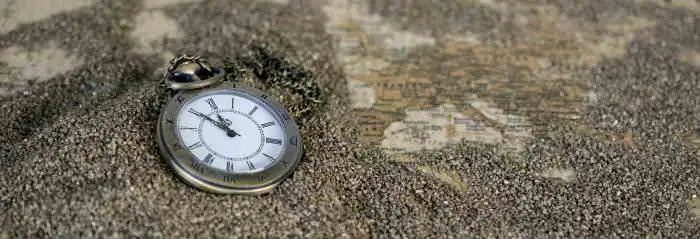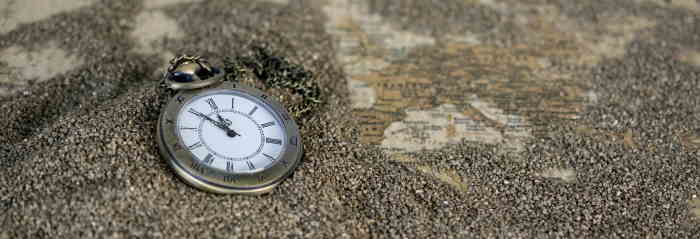- You are here:
- Home »
- Blog »
- Dive Deeper »
- When Did Freediving Begin? (& why most sports’ history pales in comparison)
When Did Freediving Begin? (& why most sports’ history pales in comparison)


The first time a human on a boat dropped something overboard was probably the beginning of freediving or at least the beginning of the idea. Eventually, someone decided, “Maybe that thing isn’t lost forever. Maybe I could go in the water after it.”
Freediving is as old as humanity, for the most part, although as a sport, it has come into its own over recent decades. Freedivers—also called skin divers—love the peace and tranquility the sport presents to them while unencumbered below the waves.
While freediving started as a necessity, many continue to practice it even in the face of technology that allows them to take air with them beneath the surface of the ocean and stay there longer. For freedivers, there’s more to it than how long they can stay under.
Freediving in Ancient Times
When fishing poles aren’t cutting it, or you want something in the water that won’t come to a fish hook, you have few options past getting in the water yourself. Humans have been doing this for thousands of years before the invention of the scuba tank.
Evidence from Chinchorro mummies found in South America shows exostosis in the bones of their inner ears, a clear indication of repeated submersion in water. This means that people were freediving in the Western Hemisphere in 7,000 BCE.
Records exist of ancient Egyptians freediving for fish, pearls, and sponges. The Epic of Gilgamesh, the oldest extant piece of literature in the world, finds our hero on a freedive for a plant of immortality. Though just a story, Gilgamesh was written 4,000 years ago at the latest, and freediving was a thing then.
Japanese texts dating back to 254 BCE tell of Ama, the diving women of Japan (who still practice freediving today exactly the way they did 2,000 years ago). The Hae-Nyeo, Korean women who dive for shellfish, were recorded in history in the 5th century CE.
How Modern Freediving Started
By most accounts, modern freediving has a definitive start date: July 16, 1913. A sponge fisherman most people agree was named Haggi Statti offered to help an Italian naval captain who had lost an anchor.
Statti said he could dive to about 300 feet (although he was Greek, so he spoke of meters) and stay down there for several minutes. He tied a big rock to himself, dove in the water, and retrieved the anchor with those skills. Modern freediving was born.
Just like humans continually try to shave time off the running or a mile or even 100 meters, would-be free divers took up the challenge to go deeper for longer periods. Inventors came up with facemasks, fins, and wetsuits, and more and more people dove deeper and deeper.
Competitive Freediving Began as a Bet
As with a lot of things people try, competitive freediving started as a bet. In 1949, Italian diver Ennio Falco bet fellow diver and air force captain Raimondo Bucher that the airman couldn’t freedive to a depth of 30 meters or a little more than 100 feet. Falco lost the bet. A year later, Falco himself dove even deeper.
Different Types of Freediving
Over the years, freediving associations have taken shape, among them the Confédération Mondiale des Activités Subaquatiques (CMAS). CMAS organizes competitions and recognizes several different types of freediving. For reference, “apnea” means “breath-holding.” Below are examples of freediving:
- Static apnea finds the freediver going for the longest breath-hold possible. In competition, the static apnea diver isn’t concerned with depths or distances swam. Static apnea is an event where the athlete aims to perform a maximum duration apnea minimally over a time declared beforehand and, if possible, go beyond this time.
- In dynamic apnea competitions, divers go for distance—all in one breath, the diver who swims the farthest underwater wins. Subcategories in dynamic apnea are with or without fins.
- Speed-endurance apnea tests breath-holding and speed of swimming. The winning athlete swims the predetermined distance all underwater in the fastest time.
- Jump blue competitions find the divers competing at a depth of about 30 feet. These are similar to speed-endurance apnea and are usually held in open water, such as a lake or ocean; these events require fins.
- Constant weight freediving is basically swimming as deep as you can. The weight being constant refers to the diver not shedding any weight at the bottom of the dive. Its cousin, variable weight freediving, finds the diver taking ballast down to a prescribed depth, dropping it, and returning to the surface.
- Free immersion freediving is essentially constant weight freediving. The difference is that divers don’t use fins.
- Skandalopetra represents the beginnings of freediving. Competitors literally tie a rock to themselves to help them reach depth.
Freediving as a Hobby
Competition isn’t the be-all, end-all though. Hobby divers are just as passionate and love the sport just as ardently as any competitor.
Everyone involved in the sport, though, recognizes the risk. Shallow water blackouts are genuine threats, and untrained divers can easily injure their lungs, ears, and even their sinuses. Freediving can be dangerous, but training and practice can better your odds.
Think about it—if you decided to take up golf having never played before, you would probably not buy some clubs, head to the course, and start whacking away at balls, thinking you’ll be able to figure it out for yourself. You’d never do that, and playing golf poorly is very unlikely to kill you.
It would be best if you didn’t do this with freediving, either. Freediving incorrectly can kill you, so you’ll want to do some training before you make your first attempt at 25 meters on a single breath. The Professional Association of Diving Instructors (PADI) offers freediving instruction; potential free divers should take advantage.
Why Freediving Remains Popular
Despite the ready availability of scuba tanks, freediving remains a popular—if niche—sport. Freedivers love it, they work hard at it, and they live a lifestyle around it. It’s like surfing in that way.
Freedivers often mention how good it feels to be in the water on a freedive, the freedom they feel, the sense of joy they seem to carry around. But on a more tangible level, it’s a great exercise. You must maintain cardiovascular health to do this well and successfully, and maintaining that is never a bad thing.
Then there’s the personal challenge aspect of freediving. Even divers who don’t attend or enter competitions still compete—sometimes with each other, often with themselves. They work to add fractions of seconds to their time underwater, they buy new gear, and they embrace gadgetry.
Whether it’s a SEAC diving watch that times and logs dives and is water-resistant to 300 feet, a mask from OctoMask with a GoPro on it, or Blade Fins from Cressi (all these and more available at Amazon.com), there’s gear out there for freedivers, and many of them take full advantage.
And free divers challenge each other, just like Falco and Bucher did just after the Second World War.
Conclusion
So when did freediving begin? Probably as soon as humankind pushed off from shore in a boat for the very first time. Maybe once we figured out there was food at the bottom of the water, if only we could get down to it.
It has since become a sport and a passion for many people. It can be dangerous, but many things in life are dangerous. Training for freediving is just as necessary as training for anything else, and it makes for safer diving. Just another second of breath-holding is that much more time in the peace of the underwater world.
About the Author Gerrie van Niekerk - Apnealogy
Gerrie is a passionate Freediver, Spearfisher, Digital Marketer, and author for the Apnealogy website. Gerrie is an SSI Level 1 certified Freediver who loves geeking out about freediving and spearfishing gear and lives for his family and adventure.

